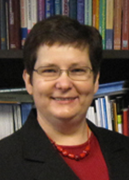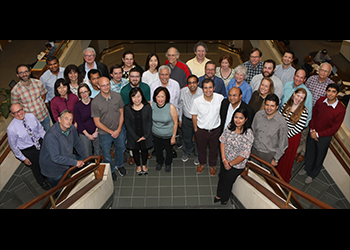The National Science Foundation CAREER is a very prestigious award. According to the National Science Foundation, “The Faculty Early Career Development (CAREER) Program is a Foundation-wide activity that offers the National Science Foundation's most prestigious awards in support of junior faculty who exemplify the role of teacher-scholars through outstanding research, excellent education and the integration of education and research within the context of the mission of their organizations.”
Project abstract:
The field of mathematics teacher education needs a strong understanding of pre-service teachers' knowledge about the practice of mathematical argumentation and proof, including the development of this knowledge, to effectively move pre-service teachers toward a more sophisticated understanding and enactment of this practice with their own students. The integrated research and educational activities will contribute to the knowledge base teacher education programs need to effectively prepare middle school teachers for meeting the challenges of how to make reasoning and proof an integral aspect of instructional practice. The research results have the potential to guide teacher educators and educational researchers concerned with strengthening pre-service teachers' ability to make reasoning and proving an integral aspect of school mathematics. Consequently, pre-service teachers will be better equipped to develop mathematical reasoning skills in their future students and to support their students in learning mathematics with understanding. Given this country's growing need for a competent STEM workforce, helping all students learn mathematics in a way that supports deeper understanding is a priority. Additionally, the support of early CAREER scholars in mathematics education will add to the capacity of the country to address issues in mathematics education in the future.
The objective of this program of research is to examine how middle school pre-service teachers' knowledge of mathematical argumentation and proving develops in teacher preparation programs. The project explores the research question: What conceptions of mathematical reasoning and proving do middle school preservice teachers hold in situations that foster reasoning about change, proportionality, and proportional relationships, as they enter their mathematics course sequence in their teacher preparation program, and how do these conceptions evolve throughout the program? This development will be studied along three dimensions:
pre-service teachers' own ability to formulate mathematical arguments,
their ability to analyze mathematical arguments, and
their ability to analyze situations that engage students in mathematical argumentation and proving.
Cross-sectional and longitudinal studies of 60 pre-service teachers' models, or systems of interpretation, of mathematical argumentation and proof in curricular context that foster reasoning about change, proportionality and proportional relationships will be conducted to provide an understanding of the trajectory that captures how pre-service teachers develop their knowledge of mathematical argumentation and proving throughout their university mathematics preparation program and into their student teaching.


